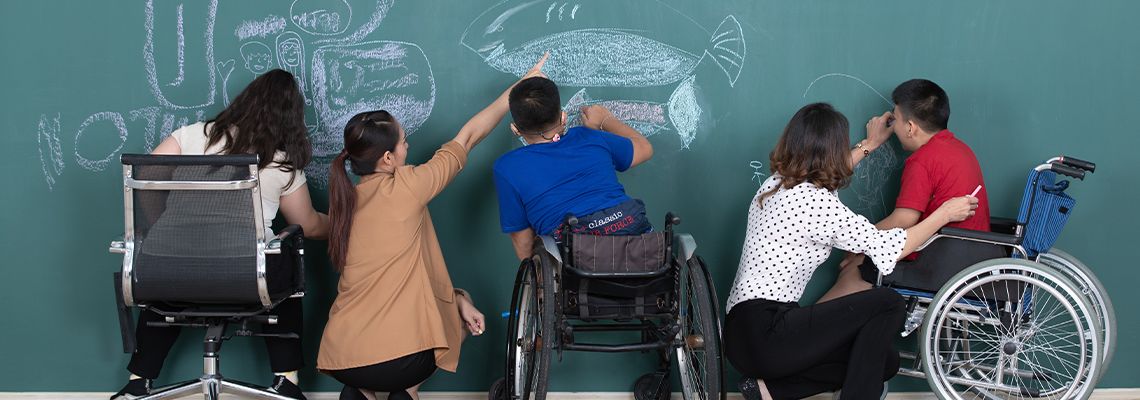
At Susan Luger Associates, we understand how important it is for parents to effectively advocate for their children’s educational needs. Working through the challenges of the education system in New York can feel overwhelming, especially when your child requires additional support.
As a trusted special education advocate, our firm is dedicated to helping families access the resources and services their children need to thrive. Advocating for your child means understanding their rights, building strong partnerships with educators, and staying informed about available resources.
Each step in this process empowers parents to create a supportive educational environment that allows their children to excel academically, socially, and emotionally. With the right tools and guidance, families in New York can overcome barriers and achieve meaningful progress.
An Intro to Your Child’s Rights
The foundation of advocacy begins with understanding your child’s rights under federal and state laws. New York’s education system operates within the structure of the Individuals with Disabilities Education Act (IDEA) and Section 504 of the Rehabilitation Act.
Key Legal Protections:
Free Appropriate Public Education (FAPE): Every child is entitled to an education that meets their unique needs.
Individualized Education Program (IEP): A tailored plan outlining the support and services your child will receive.
Least Restrictive Environment (LRE): Schools must educate children with disabilities alongside their peers whenever possible.
Understanding these rights allows you to hold schools accountable for meeting their obligations and sets the stage for effective advocacy. For example, if a school fails to provide the necessary speech therapy sessions outlined in an IEP, parents can request a review meeting to address the issue promptly.
Building a Strong Support Network
Advocating for your child requires collaboration with professionals and other parents who understand the process. Establishing a support network can provide guidance and reassurance as you work to secure a great outcome for your child.
Ways to Build Your Support Network:
Connect with parent groups: Local organizations often offer resources and advice for going through the education system.
Consult with professionals: Special education advocates, like those at Susan Luger Associates, provide knowledge to help families work through challenges.
Engage with teachers and administrators: Building positive relationships with school staff fosters collaboration and mutual understanding.
A strong support network not only offers practical assistance but also emotional support as you advocate for your child’s needs. For instance, a fellow parent who has successfully secured accommodations can share strategies and provide encouragement.
Preparing for IEP Meetings
The Individualized Education Program (IEP) process is a critical aspect of advocating for your child. These meetings determine the services and accommodations your child will receive, making preparation essential.
Steps to Prepare for IEP Meetings:
Gather documentation: Collect records, including evaluations, progress reports, and medical assessments, to support your child’s case.
Identify goals: Consider your child’s strengths and areas for improvement to develop realistic objectives.
Review current plans: Understand the existing IEP or 504 Plan and identify areas where adjustments are needed.
Bring a support person: Having an advocate or another trusted individual present can provide additional perspective.
Effective preparation makes sure you’re ready to articulate your child’s needs and advocate for necessary changes. For example, parents who come prepared with a list of desired accommodations, such as assistive technology, are better positioned to advocate for their inclusion in the IEP.
Addressing Disputes With Schools
Sometimes, disagreements arise between families and schools regarding the services provided to a child. When this happens, knowing your options is key to resolving disputes effectively.
Common Types of Disputes:
Eligibility disagreements: Disputes over whether a child qualifies for special education services.
Inadequate accommodations: Concerns that the IEP or 504 Plan doesn’t meet your child’s needs.
Placement issues: Disagreements about the most appropriate setting for your child’s education.
Resolution Options:
Mediation: A neutral mediator helps both parties reach a mutually agreeable solution.
Due process hearings: A formal legal proceeding to resolve disputes when mediation fails.
State complaints: Filing a complaint with the New York State Education Department can address noncompliance issues.
Understanding these options empowers you to advocate for your child while maintaining a productive relationship with the school. For instance, mediation often allows families to resolve disagreements more quickly than proceeding directly to a due process hearing.
Leveraging Outside Evaluations
Independent evaluations can provide valuable intuition into your child’s needs and support your case during IEP meetings or disputes. These assessments offer an objective perspective that can complement school-provided evaluations.
Benefits of Outside Evaluations:
Comprehensive analysis: Independent evaluations often include detailed recommendations for interventions and supports.
Neutral perspective: Evaluators not affiliated with the school can provide unbiased opinions.
Support during disputes: Additional evidence strengthens your position when advocating for services.
For example, an outside evaluation from a clinical psychologist might reveal a need for additional occupational therapy services, which could strengthen your argument during an IEP meeting.
Communicating Effectively With Schools
Clear communication is vital when advocating for your child. Establishing a constructive dialogue with teachers, administrators, and other school staff helps create a collaborative environment.
Tips for Effective Communication:
Be specific: Clearly articulate your child’s needs and the desired outcomes.
Document everything: Keep records of all communications, including emails and meeting notes.
Stay calm and professional: Approach discussions with a solutions-oriented mindset.
Strong communication builds trust and increases the likelihood of achieving positive results for your child. For instance, presenting concerns as collaborative questions (“How can we better support my child during math instruction?”) encourages productive discussions.
How Special Education Advocates Can Help
Working with a special education advocate can make a significant difference in managing New York’s education system. These professionals provide support to help families secure appropriate services for their children.
How Special Education Advocates Assist:
Interpreting laws and regulations: Advocates explain how federal and state laws apply to your child’s situation.
Preparing for meetings: They help families gather evidence, set goals, and articulate their requests.
Attending meetings: Advocates can participate in IEP meetings to support families and make sure their voices are heard.
Partnering with an advocate like those at Susan Luger Associates empowers families to approach advocacy with confidence and clarity. For instance, an advocate can help you address pushback from schools regarding specific accommodations, making sure your child receives the necessary support.
Monitoring Your Child’s Progress
Advocacy doesn’t end with securing services—it requires ongoing monitoring to make sure your child is making progress. Regularly reviewing your child’s progress helps identify areas where additional support may be needed.
Ways to Monitor Progress:
Review progress reports: Examine updates from teachers and therapists to track improvements.
Request regular meetings: Stay informed by scheduling check-ins with school staff.
Observe your child’s experiences: Pay attention to how your child feels about their educational environment.
By staying engaged, you can address concerns promptly and advocate for adjustments when necessary. For example, if a progress report indicates your child isn’t meeting IEP goals, you can request an immediate review meeting to reassess the plan.
Staying Informed About Policy Changes
Education policies and regulations frequently change, impacting the services and accommodations available to your child. Staying informed assures you’re aware of new opportunities and challenges.
Strategies to Stay Informed:
Follow updates from the New York State Education Department: Monitor announcements about policy changes and new programs.
Join advocacy groups: Organizations focused on special education often share valuable updates and resources.
Attend workshops and seminars: These events provide intuition into current trends and best practices in advocacy.
Remaining informed allows you to adapt your advocacy efforts to align with current policies and regulations. For example, understanding changes in state funding for special education services can help you better advocate for your child’s needs.
Contact Us Today
At Susan Luger Associates, we’re committed to helping families advocate for their children’s needs in New York’s education system. We serve families in New York City and the Greater New York City area, including Long Island, the 5 Boroughs, Westchester County, and Rockland County.
Reach out to us today to learn how one of our special education advocates can assist you in securing educational opportunities for your child.


